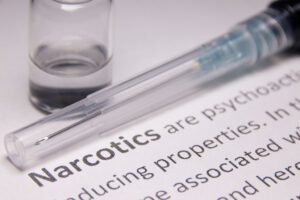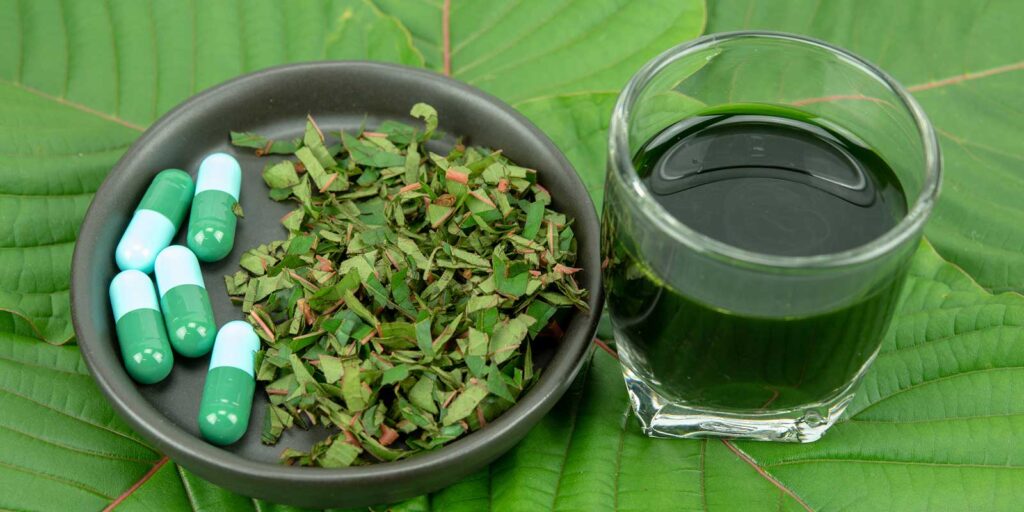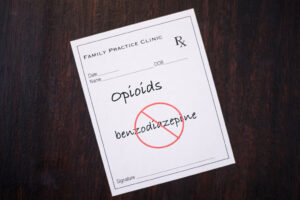
Understanding Opioid Narcotics: Risks, Treatment, and Recovery
Opioid narcotics, potent substances used for pain management, have become a focal point of public health discussions due to their high potential for addiction and

In recent times, Kratom has emerged as a compound of increasing interest, particularly due to a noticeable uptick in its misuse. This natural substance finds itself in a complex legal and regulatory limbo; it remains unlisted under the federal Controlled Substances Act, yet faces restrictions or outright bans in various state jurisdictions. The absence of medical endorsement from the Food and Drug Administration (FDA) further complicates its status, as no medical applications have received approval. Adding to the substance’s contentious position, the Drug Enforcement Administration (DEA) categorizes Kratom as a substance of significant concern, highlighting the growing attention and debate surrounding its use and regulation.
Kratom, scientifically known as Mitragyna speciosa, is a tropical evergreen tree native to Southeast Asia, specifically countries like Thailand, Indonesia, Malaysia, Myanmar, and Papua New Guinea. The leaves of the kratom tree contain compounds that can have psychoactive (mind-altering) effects, notably mitragynine and 7-hydroxymitragynine. These compounds interact with opioid receptors in the brain, leading to effects ranging from stimulation at low doses to sedation at higher doses, and pain relief. The plant’s effects can also include euphoria and a reduction in anxiety for some users.
Traditionally, kratom leaves have been used for their medicinal properties, such as to relieve pain, or to increase energy, productivity, and even as an aid for opioid withdrawal symptoms. However, kratom’s safety and efficacy for these uses have not been confirmed by clinical research. The FDA has not approved kratom for any medical use, and it has raised concerns about its safety, including the potential for addiction, abuse, and serious health risks such as liver damage, seizures, and withdrawal symptoms akin to opioid addiction. There have also been reports of contaminated kratom products leading to illness.
Kratom is legal in some countries and U.S. states but banned or restricted in others due to these health concerns and its potential for abuse. Despite its legal status in some areas, the FDA and the DEA have warned against its use due to safety concerns and the lack of approved medical applications.
Need Expert Advice on Opiate Detox Treatment?
Email us confidentially for personalized guidance.
For immediate support, dial 1-800-423-2482.
It is important to understand the potential risks associated with Kratom use, particularly as a pain reliever or opioid replacement. Despite Kratom’s recent attention, we receive a significant number of patients who have unfortunately become addicted to Kratom. Therefore, it is crucial to carefully evaluate the risks involved before considering Kratom for these purposes.
While Kratom has been traditionally used in Southeast Asia for various purposes, it is essential to recognize that the scientific research on its safety and effectiveness is still limited. Kratom contains alkaloids that interact with the brain’s receptors, producing both stimulant and opioid-like effects. As a result, regular and prolonged use of Kratom can lead to dependence, addiction, and withdrawal symptoms.
We believe that the risks associated with Kratom use far outweigh any potential benefits. It is important to consider alternative, evidence-based pain management strategies that are supported by comprehensive medical research.
Furthermore, the quality and purity of Kratom products in the market can vary significantly. Contamination, improper handling, and inconsistent dosages pose additional risks to users.
Our mission is to provide the best treatment for kratom addiction and accurate and up-to-date information to promote informed decision-making regarding Kratom use. We prioritize the well-being of our visitors and encourage exploring safer alternatives for pain management and overall health.
Remember, seeking guidance from healthcare professionals and understanding the potential risks associated with Kratom are essential steps towards making informed choices for your well-being. We are here to help you get the kratom treatment you need, navigate the complexities surrounding its use and provide support on your journey toward a healthier and safer approach to pain or withdrawal management.
It is crucial that people are aware of the potential dangers associated with using Kratom as a treatment for opioid withdrawal. While it may be promoted as a natural alternative, it is crucial to approach it with caution due to the risks it poses to individuals seeking relief from opioid withdrawal symptoms.
Kratom contains alkaloids that interact with the brain’s receptors, producing effects similar to opioids. This can lead to a false perception that this drug can be a safe and effective substitute during the withdrawal process. However, it is important to understand that Kratom itself can result in dependence, addiction, and other adverse effects.
Using Kratom during opioid withdrawal can perpetuate the cycle of dependence and delay the recovery process. Therefore, seeking appropriate and medical-based treatment methods is vital. One option to consider is the Waismann Method Medical Detoxification and Rapid Detox, which provides one of the most effective medically supervised approaches to kratom detoxification.
Waismann Method includes a thorough evaluation, personalized treatment plans, and a rapid detoxification process to help individuals safely and efficiently overcome opioid withdrawal symptoms and physical cravings while speeding up nervous system recovery. This approach is performed under the supervision of experienced medical professionals to ensure the utmost safety, comfort and treatment effectiveness.
Healthcare professionals who specialize in addiction medicine can provide the necessary expertise and guidance to ensure the most appropriate treatment plan is followed.
Remember, your health and well-being are of utmost importance. By seeking the appropriate professional guidance and exploring successful drug detoxification treatments, you can embark on a safer and more successful journey toward recovery from opioid withdrawal.
Kratom has gained attention for its easy accessibility and reported effects. In small doses, it can induce euphoria and enhance concentration, while larger amounts tend to promote relaxation. However, it is crucial to be aware of the potential risks and health concerns associated with Kratom use. Some individuals may experience acute side effects that resemble those felt with opioid drugs, such as:
For the last decade, hospital emergency rooms have reported an increase in patients suffering from kratom abuse, resulting from overusing the drug, while others were complaining of withdrawal symptoms.
Kratom may be toxic and even deadly. Even at low to moderate doses, kratom can lead to potentially harmful side effects. These can include:
In more severe cases or combined with other substances, kratom can also lead to seizures and coma.
There has been a significant uptick in reports of kratom toxicity to poison control. Kratom may be particularly dangerous when taken with other drugs, such as benzodiazepines, other opioid medications, or even nasal decongestants.
Kratom currently falls outside the scope of control under the Controlled Substances Act at the federal level. However, it is important to note that there may be state regulations or prohibitions regarding the possession and use of kratom.
The Food and Drug Administration (FDA) has not approved Kratom for any medical use. This means that Kratom is not recognized or endorsed by the FDA as a treatment or remedy for any specific medical condition or purpose.
In addition, the Drug Enforcement Administration (DEA) has listed kratom as a Drug and Chemical of Concern. This classification indicates that the DEA has identified kratom as a substance of interest due to its potential risks and possible public health concerns.
Click here for the summary of kratom State Laws.
If you are considering stopping or reducing your Kratom use, it is essential to understand the potential withdrawal symptoms and the general timeline associated with Kratom withdrawal. Keep in mind that the severity and duration of withdrawal and detox can vary depending on factors such as dosage, duration of use, and individual differences. Here is a general overview:
1. Early Stage (24-72 hours):
Withdrawal symptoms typically begin within 24 to 72 hours after the last dose.
Common early-stage symptoms may include:
2. Peak Stage (Days 3-5):
Withdrawal symptoms often peak around the third to fifth day after cessation.
During this phase, you may experience more intense symptoms, including:
3. Subsiding Stage (Week 1 onwards):
As you progress through the first week, you may notice a gradual improvement in symptoms.
However, some residual effects may persist, such as:
It’s important to note that individual experiences may differ, and some individuals may experience more or fewer symptoms. The duration of withdrawal can also vary, with some people experiencing symptoms for a week or two, while others may have prolonged symptoms for several weeks.
If you are concerned about Kratom withdrawal or finding the symptoms challenging to manage, seeking professional guidance is recommended. A healthcare professional or addiction specialist can provide personalized support, develop a tailored plan, and offer strategies to alleviate withdrawal symptoms effectively.
Remember, while Kratom withdrawal can be uncomfortable, it is temporary, and your body and mind will gradually adjust to the absence of Kratom. Stay committed to your recovery journey, seek support from loved ones or support groups, and be patient with yourself as you navigate through this process.
With a medical detoxification program like the Waismann Method, you have the opportunity to minimize the discomfort of Kratom withdrawal symptoms. In fact, during the acute withdrawal phase, the Waismann Method offers the option of undergoing sedation-assisted detox, where you can sleep comfortably under medical supervision while the most intense withdrawal symptoms are managed. This unique approach can provide a smoother transition and alleviate much of the discomfort associated with Kratom withdrawal. By seeking professional help and exploring specialized detoxification programs, you can increase your chances of a more comfortable and successful recovery journey.
Unlock the door to a new beginning with the Waismann Method, where overcoming Kratom addiction transcends the conventional. Beyond the realm of rapid detox, we proudly introduce our medically assisted Kratom detox, a comprehensive approach tailored to your journey towards recovery. Guided by our expert medical team, this process is designed with your unique circumstances in mind, focusing on a detoxification strategy that aligns with your specific needs.
The Waismann Method is not just about rapid detox; it’s about providing a comprehensive suite of options, including medically assisted detox, to address Kratom dependency. Our commitment to personalized care shines through as we adapt our strategies to suit the intricacies of your addiction, health status, and any concurrent medical conditions. By choosing the Waismann Method, you’re not just selecting a detox program—you’re opting for a path that respects your individual journey, offering a blend of medical innovation and compassionate care. Step into a brighter, Kratom-free future with us.
Speak With an Addiction Specialist
Exceptional Care & Better Outcome. Get In Touch With Us Today!
Remember, getting off Kratom is a personal journey; there is no one-size-fits-all approach. Tailor your recovery plan to suit your individual needs and consult with professionals to ensure a safe and effective process. With determination, support, and a comprehensive approach, you can regain control of your life and move towards a healthier, Kratom-free future.
What's New at Waismann Method®

Opioid narcotics, potent substances used for pain management, have become a focal point of public health discussions due to their high potential for addiction and

In today’s fast-paced world, the conversation around prescription medication misuse, particularly the mixing of benzodiazepines (benzos) and opiates, has become more crucial than ever. While

Welcome to your comprehensive guide on safely navigating the world of OTC (over-the-counter) drugs. In this essential read, we dive into critical tips and strategies



Get Newsletter Updates from Waismann Method®
"*" indicates required fields
We are available 7 days a week
DISCLAIMER: The text presented on this page is not a substitute for professional medical advice. It is for your information only and may not represent your true individual medical situation. Do not hesitate to consult your healthcare provider if you have any questions or concerns. Do not use this information to diagnose or treat a health problem or disease without consulting a qualified healthcare professional. Be advised that Opiates.com articles are derived from various sources and may not reflect your own country’s regulations.